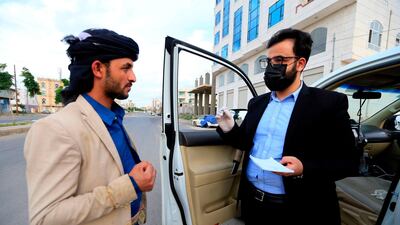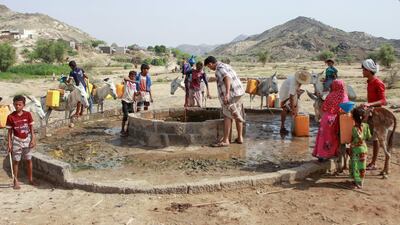Heavy rains in August could deepen a “hidden cholera crisis” in Yemen that may have already killed thousands, Oxfam has warned, as the Covid-19 pandemic overwhelms the country’s already embattled health system.
More than 100,000 suspected cases of cholera were officially recorded in the first three months of the year, but this figure dropped by 50 per cent in the second quarter as the coronavirus spread globally.
Typically the number of cases rises in the second quarter to coincide with the start of the rainy season, suggesting that “there are already tens of thousands of people suffering with undetected and untreated cases of cholera”.
The charity said Yemenis are too frightened to seek medical treatment because they fear contracting Covid-19.
Muhsin Siddiquey, Oxfam’s Yemen director, said the country was “on course for a truly horrific catastrophe” with both Covid-19 and cholera set to peak in the coming weeks.
“Yemenis desperately need an end to the fighting which has destroyed health facilities and left communities more vulnerable to the virus,” he said.
Around half of those diagnosed with cholera are expected to die if they are left untreated but timely and adequate intervention would see that drop to below one per cent.
“Rather than show that Yemen has cholera and Covid-19 under control, the low official numbers demonstrate the exact opposite,” Mr Siddiquey said. “A lack of working health facilities and people too scared to get treatment mean that the numbers suffering from these diseases are being vastly under recorded.”
While officially Yemen has recorded 1,644 Covid-19 cases, the real number is thought to be significantly higher. Last month, the British government warned that infections may have already reached one million.
Yemen’s economy had already been in deep trouble before the global pandemic, but now food prices have increased and Oxfam said that millions of Yemenis were being pushed deeper into a hunger crisis.
Mr Siddiquey added that the international community urgently needed to increase its funding to Yemen.
“The world is reeling from the economic blow dealt by the Coronavirus but that shouldn’t mean that the millions of Yemenis who were already suffering through hunger, disease and conflict should be abandoned to their fate,” he said.











